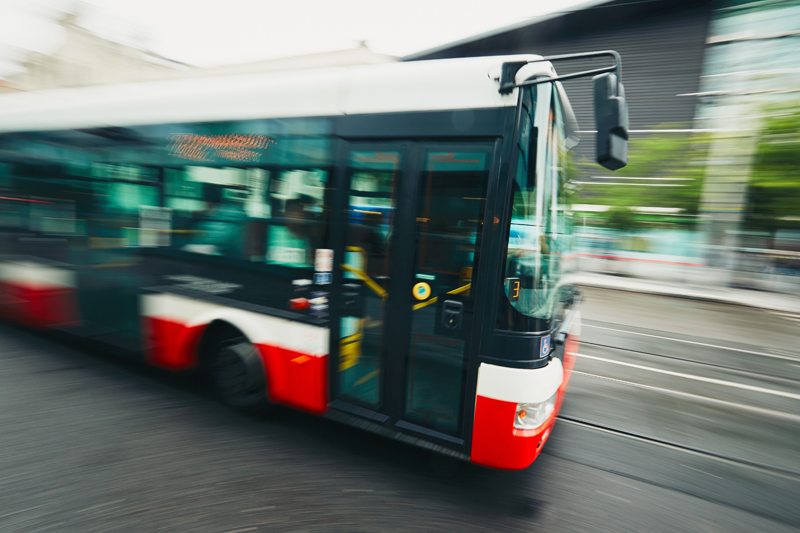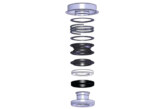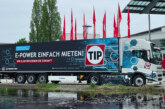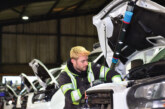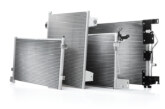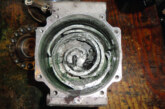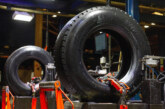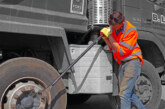Keeping up with emission regulations is an increasingly vital task for operators. Here, Total details how its range can support these efforts.
In a bid to tackle toxic air pollution, the world’s first ultra-low emission zone (ULEZ) will come into force in central London from April 2019. Meanwhile, Clean Air Zones (CAZ) will come into effect in five cities by 2020, with other towns and cities expected to follow suit.
The details of the proposed Clean Air Zones in some cities – Southampton, for instance – are still being finalised, but others, such as Leeds, have confirmed they will introduce a chargeable CAZ, where buses and HGVs that fail to meet the required emissions standards will be charged a daily fee to enter it.
The latest Euro VI engines offer a significant reduction in the most harmful pollutants, including emissions of particulate matter, nitrogen oxides, unburnt hydrocarbons, carbon dioxide and carbon monoxide.
HGVs that meet the latest Euro VI emissions standards will be eligible for a 10% discount on tax, while Euro V and older vehicles will pay 20% more, under the HGV road user levy which is set to be introduced in February 2019.
With the challenge to reduce emissions, combined with advancements in engine technology and the roll-out of Euro VI engines, Total Lubricants is already supporting commercial vehicle fleets in their drive to become cleaner, greener, and more efficient.
Lubricants
Total’s RUBIA 9900 FE 5W-30 grade has been developed for Euro VI, but is suitable for lubricating all types of diesel engines. These include Euro V and previous, fitted with or without post-treatment systems such as exhaust gas recirculation (EGR), selective catalytic reduction (SCR) or diesel particulate filter (DPF). Its backwards compatibility with previous Euro standards enables coverage for mixed fleets by a minimal number of products.
The advanced low-SAPS (low sulphated ash, phosphorus and sulphur) formulation of RUBIA 9900 FE 5W-30 helps prevent the clogging of the DPF and extends post- treatment durability.
Additives
Total EXCELLIUM is a diesel fuel additive for buses and commercial fleets. It keeps fuel injectors clean and improves clean burn inside the engine, providing up to a 5% reduction in fuel consumption.
Across 10,500 miles, EXCELLIUM also delivers a reduction in CO2 emissions of up to 4.2%, while carbon monoxide emissions are reduced by 32%, unburnt hydrocarbons by 55%, nitrogen oxides by 21% and particulates by 16%. Many buses and HGVs also require AdBlue, a fluid that is added to the exhaust system and chemically reacts to convert harmful NOx emissions to innocuous nitrogen (N2).
Oil & coolant analysis
Using oil analysis can help fleet operators understand how engines are performing, check fuel injectors are working properly, and ensure oil viscosity is in the right range, as this is vital to achieving optimum engine efficiency and emissions control.
If soot is absorbed by the engine oil, it can thicken it which can lead to greater wear. Oil analysis, such as Total ANAC (Analysis Compared), can also highlight whether the oil needs changing, or if its life can be extended.
Coolant analysis should also be carried out to ensure the concentration of the coolant is correct, and to ensure it doesn’t overheat in summer or freeze in winter.
Coolants
Coolants containing organic acid technology (OAT) offer maximum cooling of bus engines equipped with stop-start technology, as they are designed to reduce exhaust fumes while loading and unloading passengers.
Total COOLELF AUTO SUPRA -37°C is a cooling liquid that can be used in all cooling systems of combustion engines in buses and HGVs, as well as other vehicles.
Servicing
Regular servicing, including changing the oil and oil filter when necessary, and checking fuel injectors and brakes, should be carried out. Air filters, which prevent dust particles getting into the engine and reduce wear, should also be changed frequently. Keeping buses and HGVs running in line with emissions regulations is going to become more important as we move into the ‘clean air zone era’.


